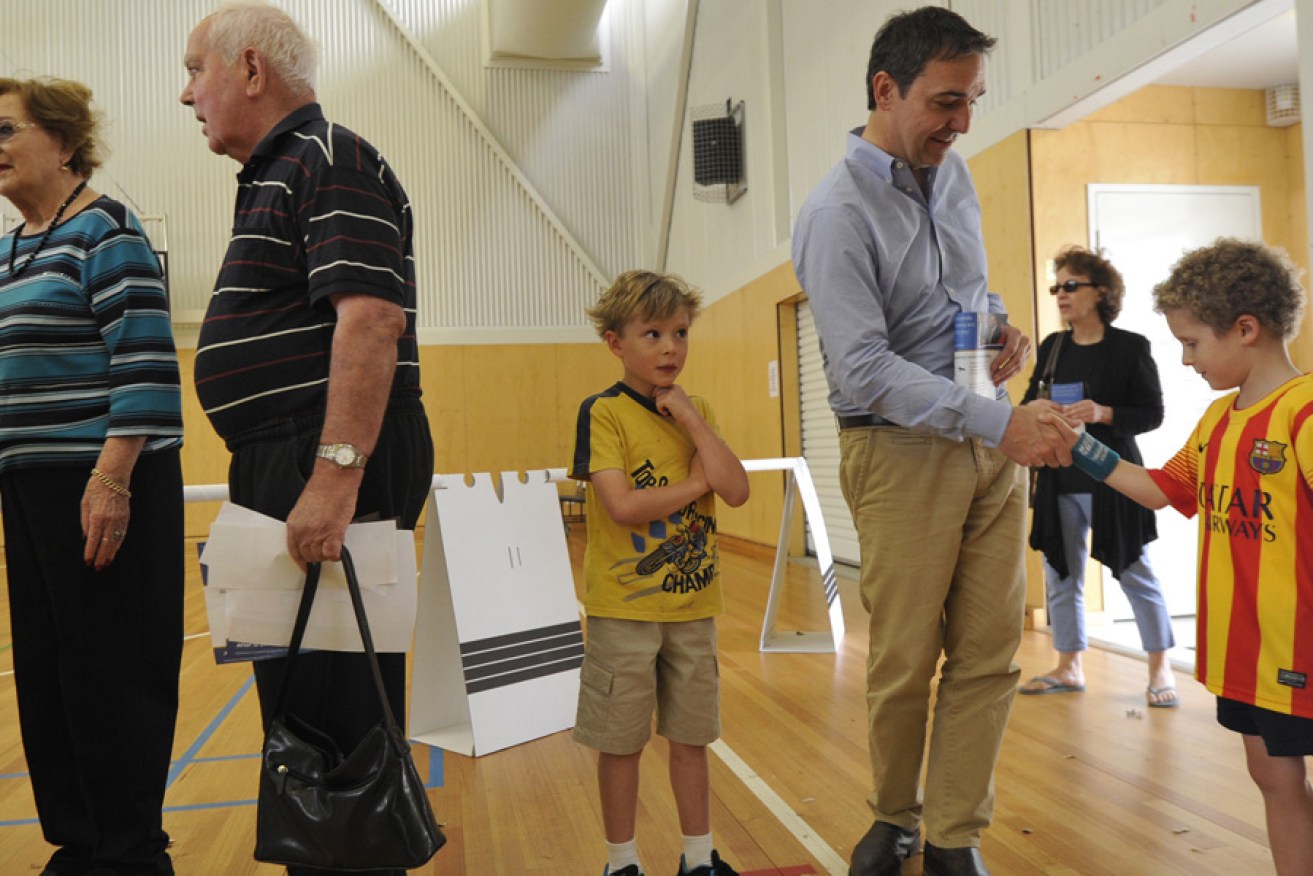Boundaries commission “has failed SA for 40 years”
A former Liberal Deputy Premier and Treasurer has told the electoral boundaries commission that it has served the state “very poorly” for the past 40 years, claiming a “fair redistribution” of the electoral map in the 1980s “would have saved SA from the State Bank disaster”.

A former Liberal heavyweight says he knew Steven Marshall was on a hiding to nothing. Photo: AAP.
Stephen Baker, whose retirement from parliament in 1997 opened the door for Martin Hamilton-Smith to inherit his Mitcham-based seat of Waite, said he knew before the 2014 election that the Liberals could not win, based on polling in the final week of the campaign putting them ‘only’ five points ahead, with 52.5 per cent of the two-party vote.
“Everybody said ‘you’re going to win’… you know, congratulating us [and] I said, ‘we can’t win… cannot win with that vote’,” he said in a recent hearing, whose transcript has been published on the commission’s website.
“It’s not because of good campaigning or any of those things… the probability that we could win was very low because we need virtually 54 per cent of the vote – and that’s wrong, totally wrong.”
Baker told the presiding panel, chaired by Supreme Court Judge Ann Vanstone, that earlier iterations of the commission had “simply not provided for results that would give democracy to the state”.
“Originally, it did try to do a good job, but after that it deteriorated in its judgments,” he said, noting that he had played a “major role” in Liberal Party submissions in 1976, 1983 and 1989.
“To my mind, and with the amount of research I did on these subjects, we were getting an unfair result,” he said, dismissing an argument in an earlier submission by academic Clem Macintyre that the commission’s methodology had been “fundamentally sound”.
“Look, I would repudiate that – simply repudiate that,” said Baker.
“Anyone who has not, like we have in the Liberal Party, gone through the process of getting their hands dirty and constructing potential electorates … booth by booth … any political commentator that has never done that job is not in a position to say whether something is sound or not.”
Baker asserts “without stretching the matter too far” that “if we had had an appropriate redistribution in 1983, there’s a fair chance that we would have saved the state from the State Bank disaster”.
“I think there’s also a fair chance, if the 2012 redistribution worked as it should have, then we would have had a change of government in this state and we wouldn’t see the state being indebted more and more by a government that’s incompetent,” he argued.
“Now, they’re political statements, but I’m just saying you can reflect that people wanted a change and they were not allowed to have that change, and the system does not allow it.”
Baker says he researched back to the initial boundary distribution after the constitution was changed in 1991, and argues “I still found we could not win with less than 51.5 to 52 per cent of the vote”.
“So can I say the EDBC has really treated this state badly, irrespective of whether you think it has treated the Liberal Party badly,” he said.
“All I’m saying to the commission is if you get the statistics and the probability right then let the cards fall, but don’t come to us and don’t come to the people of South Australia and say, ‘we’re not going to give the Liberal Party a fair chance of winning’.
“I hope everybody in this room, deep down, wants a fair outcome, and we’re not getting a fair outcome right now.”
The commission will hold a series of regional hearings in coming weeks, as it considers the prospect of changes to rural Liberal-held electorates, which are seen to stockpile their statewide vote in a relatively few safe seats.
One suggestion raised was combining Port Augusta and Whyalla into one electorate.
Current Liberal MP Mitch Williams told the commission such a suggestion may not elicit strong views in the electorates affected because “the vast majority of the population don’t care too much”.
“They do, after an election like the one that we’ve most recently had, but by and large they are relatively apathetic … until people like myself get it terribly wrong and then they march down the street,” he said.
Williams argued “the whole question before this commission is how do we transfer votes into seats on the floor of the House, and thus, the formation of government”.
“I would argue that the reality is the commission needs to change boundaries such that a significant number of the seats held by the Labor Party are much safer to Labor, and thereby – to use the commission’s language – tie up or waste more of the Labor Party votes so as that we can get that more even spread of the marginal seats,” he said.




